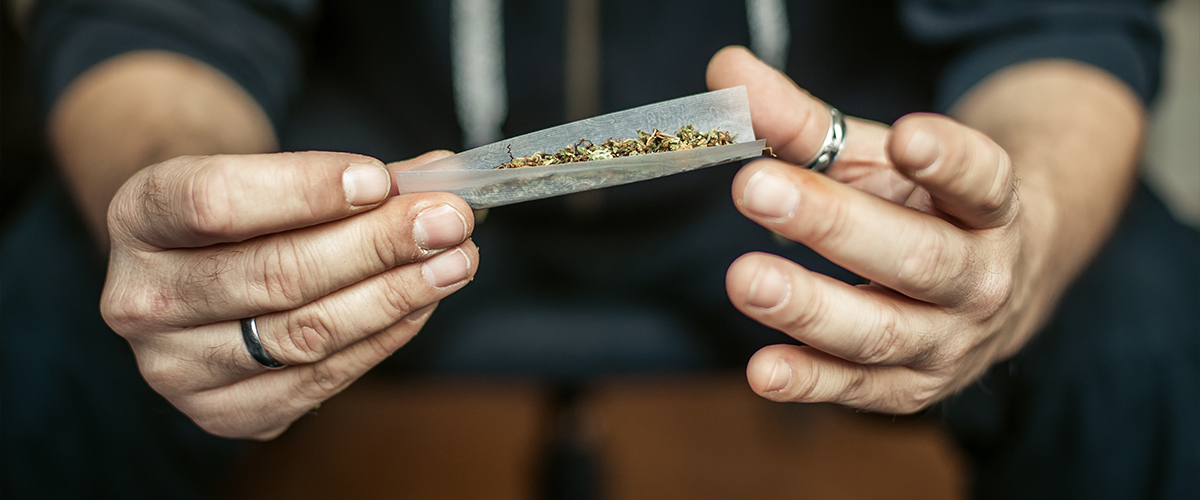“Introduction: Traumatic brain injury (TBI) is a significant source of morbidity and mortality in the United States. Recent shifts in state legislation have increased the use of recreational and medical marijuana. While cannabinoids and tetrahydrocannabinol (THC) have known anti-inflammatory effects, the impact of preinjury THC use on clinical outcomes in the setting of severe TBI is unknown. We hypothesized that preinjury THC use in trauma patients suffering TBI would be associated with decreased thromboembolic events and adverse outcomes.
Methods: The American College of Surgeons Trauma Quality Improvement Program was used to identify patients aged ≥18 y with TBI and severe injury (Injury Severity Score ≥ 16) in admit year 2017. Patients with smoking or tobacco history or missing or positive toxicology tests for drug and/or alcohol use other than THC were excluded. Propensity score matching was used to compare THC+ patients to similar THC- patients.
Results: A total of 13,266 patients met inclusion criteria, of which 1669 were THC+. A total of 1377 THC+ patients were matched to 1377 THC- patients. No significant differences were found in in-hospital outcomes, including mortality, length of stay, cardiac arrest, pulmonary embolism, deep vein thrombosis, or acute respiratory distress syndrome. No patients had ischemic stroke, and THC+ patients had significantly decreased rates of hemorrhagic stroke (0.5% versus 1.5%, P = 0.02, odds ratio 0.41 [95% confidence interval 0.18-0.86]).
Conclusions: Preinjury THC use may be associated with decreased hemorrhagic stroke in severely injured patients with TBI, but there was no difference in thromboembolic outcomes. Further research into pathophysiological mechanisms related to THC are needed.”
https://pubmed.ncbi.nlm.nih.gov/35305485/

 “Cannabinoids reduce tremor associated with motor disorders induced by injuries and neurodegenerative disease. Here we show that this effect is mediated by cannabinoid receptors on astrocytes in the ventral horn of the spinal cord, where alternating limb movements are initiated. We first demonstrate that tremor is reduced in a mouse model of essential tremor after intrathecal injection of the cannabinoid analog WIN55,212-2. We investigate the underlying mechanism using electrophysiological recordings in spinal cord slices and show that endocannabinoids released from depolarized interneurons activate astrocytic cannabinoid receptors, causing an increase in intracellular Ca2+, subsequent release of purines and inhibition of excitatory neurotransmission. Finally, we show that the anti-tremor action of WIN55,212-2 in the spinal cords of mice is suppressed after knocking out CB1 receptors in astrocytes. Our data suggest that cannabinoids reduce tremor via their action on spinal astrocytes.”
“Cannabinoids reduce tremor associated with motor disorders induced by injuries and neurodegenerative disease. Here we show that this effect is mediated by cannabinoid receptors on astrocytes in the ventral horn of the spinal cord, where alternating limb movements are initiated. We first demonstrate that tremor is reduced in a mouse model of essential tremor after intrathecal injection of the cannabinoid analog WIN55,212-2. We investigate the underlying mechanism using electrophysiological recordings in spinal cord slices and show that endocannabinoids released from depolarized interneurons activate astrocytic cannabinoid receptors, causing an increase in intracellular Ca2+, subsequent release of purines and inhibition of excitatory neurotransmission. Finally, we show that the anti-tremor action of WIN55,212-2 in the spinal cords of mice is suppressed after knocking out CB1 receptors in astrocytes. Our data suggest that cannabinoids reduce tremor via their action on spinal astrocytes.” “Anxiety and depressive disorders are highly prevalent. Patients are increasingly using medicinal cannabis products to treat these disorders, but little is known about the effects of medicinal cannabis use on symptoms of anxiety and depression.
“Anxiety and depressive disorders are highly prevalent. Patients are increasingly using medicinal cannabis products to treat these disorders, but little is known about the effects of medicinal cannabis use on symptoms of anxiety and depression.  “The rapid spread of COVID-19 underscores the need for new treatments.
“The rapid spread of COVID-19 underscores the need for new treatments. “Background: The ongoing opioid overdose crisis is driven largely by exposure to illicitly-manufactured fentanyl. Preliminary observational and experimental research suggests that cannabis could potentially play a role in reducing use of prescription opioids among individuals with chronic pain. However, there is limited data on the effects of cannabis on illicit opioid consumption, particularly fentanyl, especially among individuals on opioid agonist therapy (OAT). We sought to assess the longitudinal association between cannabis use and exposure to fentanyl among people on OAT.
“Background: The ongoing opioid overdose crisis is driven largely by exposure to illicitly-manufactured fentanyl. Preliminary observational and experimental research suggests that cannabis could potentially play a role in reducing use of prescription opioids among individuals with chronic pain. However, there is limited data on the effects of cannabis on illicit opioid consumption, particularly fentanyl, especially among individuals on opioid agonist therapy (OAT). We sought to assess the longitudinal association between cannabis use and exposure to fentanyl among people on OAT.


 “Background/objectives: Use of cannabis is increasing in a variety of populations in the United States; however, few investigations about how and for what reasons cannabis is used in older populations exist.
“Background/objectives: Use of cannabis is increasing in a variety of populations in the United States; however, few investigations about how and for what reasons cannabis is used in older populations exist. “Cannabis exposure is becoming more common in older age but little is known about how it is associated with brain health in this population.
“Cannabis exposure is becoming more common in older age but little is known about how it is associated with brain health in this population.